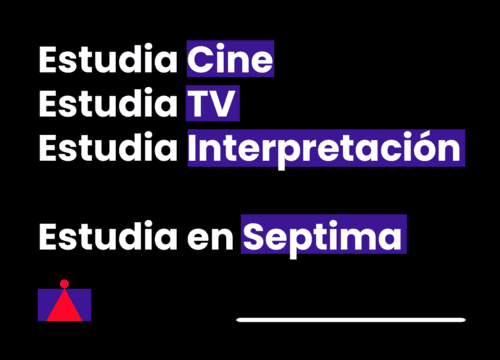 En este artículo el periódico británico The Guardian expone la situación de la nueva generación de creadores de contenidos audiovisuales.
En este artículo el periódico británico The Guardian expone la situación de la nueva generación de creadores de contenidos audiovisuales.
Existe una revolución se preguntan, pero no será televisada ¿ por qué ?. Porque no hace falta. Tu mismo emitirás tus contenidos, tu decidirás qué emitir y porqué.
Cuando hace exactamente un año la compañía Youtube nos encargó la realización del primer curso en España para Youtubers ya teníamos clara la tendencia y las nuevas oportunidades que se ofrecían a los nuevos creadores.
Ahora un año después proponemos un curso de una semana de duración para todos aquellos que desean generar contenidos específicos para medios online y desean convertirse en sus propios distribuidores.
Aquí tienes el artículo completo pues esta revolución está comenzando y tu puedes incorporarte a ella cuando quieras.
«The revolution will not be televised but who cares? It’s already online, as a new wave of young ‘YouTubers’ threaten traditional TV with their sharp video blogs and direct interaction with their millions of mostly teenage fans.
The moment I realised I was middle-aged came at 4.25pm on a Monday a month or so ago. I was at the BFI on London’s Southbank and had just watched a 15-minute documentary called Becoming YouTube, made by a young film-maker called Benjamin Cook. Cook, who has postbox-red hair and a painful-looking piercing in his lower lip, was now on stage in discussion with four fellow YouTubers, all in their early 20s. I had no idea who they were but I was in a minority of one. Among them, the five have almost 4m registered fans (‘subscribers’ to their YouTube channels) around the world, and millions more are intimately familiar with their work and lives. They came across not quite as rock stars; more like what I imagine would happen if Matt Smith turned up at a Doctor Whoconvention.
I played back in my head a section of Cook’s film, which was clearly not aimed at someone in their mid-OK-late 30s like me. «You might have noticed that a lot of people… don’t get YouTube,» he said, staring down the camera lens. «Most people treat YouTube in the same way as they would a blocked toilet or Piers Morgan’s TV career: they don’t know how it happened or who’s behind it but they figure it’s probably just full of shit and they’ll leave it for someone else to deal with.»
Cook’s lip curled into a sneer. «And in YouTube’s case that’s a shame. Or maybe it isn’t. Because, for the time being at least, YouTube feels like our secret: we know that YouTube is a hub of raw untethered talent; a place we can engage, experiment and create in a way that TV – whatever that is – can only dream of.»
I was beginning to feel I’d underestimated YouTube, and I’ll bet I’m not the only one. The site features in most of our lives but only in a passive way: we go there to find the video of Nora the piano-playing cat, to track down Zlatan Ibrahimovic’s wonder-goal or to watch Psy’s «Gangnam Style» 1,488, 814,712 times. There might be gems on YouTube, but with 72 hours of video uploaded every minute, who has the time to hunt it down?
Well, on the evidence of the screening at the BFI, teenagers do, and specifically girls aged between 13 and 17. What they are searching for are video blogs («vlogs») from cute middle-class boys with Bieber sweeps, make-up instructionals, comedy sketches featuring cute middle-class boys with Bieber sweeps, and video-game «playthroughs», step-by-step guides to completing, say, Resident Evil 5. If you have ever wondered what your children are doing in their bedrooms, or why they are glued to their phones for 16 hours a day, you should watch the first instalment of Cook’s 12-part Becoming YouTube. If you are interested in the increasingly targeted and personalised direction that all onscreen entertainment is heading in, it’s worth checking out too. One thing you’ll soon realise is that this new generation of superstar YouTubers are not just gawky kids sitting in their bedrooms with a webcam. That might be how it started but many have managed to turn it into a lucrative business.
Take Charlie McDonnell, who was on the BFI panel, wearing a Toy StoryT-shirt and black hoodie. He created the YouTube channel charlieissocoollike in 2007, when he was putting off revising for GCSEs. The next year, as his vlogs racked up subscribers and views, YouTube started to split ad revenues with its content creators. After A-levels McDonnell had a choice: go to university or become a full-time vlogger. He chose the latter, bought a house and – according to the February issue of Wired magazine, on the cover of which he appeared – now earns, from ads and merchandise sales, more than his parents. Recent posts on charlieissocoollike have included nerdy lectures on science, an appeal for donations to the Alzheimer’s Society and – heartbreakingly for most of his audience – a confession that he now has a girlfriend.
McDonnell’s friend and housemate, a 23-year-old vlogger and singer-songwriter from Essex called Alex Day, has been described as «the future of music» by Forbes. He created his YouTube channel, nerimon, in 2006, again for fun. He puts up songs and music videos, as well as filming chatty updates on his life. He developed a devoted following and decided to see how far he could get without a major label behind him. The answer was No4 in the UK charts, with 130,000 downloads globally of his single, Forever Yours, in December 2011; his first two royalty cheques came to more than £100,000. (More than 1,000 people worldwide now earn more than $100,000 a year from just their YouTube revenues.)…»
Leer el artículo completo: www.guardian.co.uk





